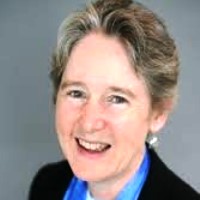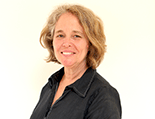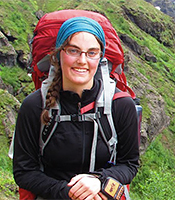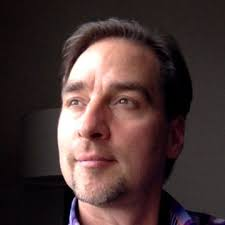Greetings RE-AMPers!
- We talked to Julia Nerbonne of Minnesota Interfaith Power & Light who’s part of RE-AMP’s first Action Team.
- Check out the Action Team updates, including two approved Level 1 teams and look at conversations happening between network members.
- If you are interested in mapping collaboration, Kumu may be for you – check it out.
- Read Curtis Ogden’s article – Why Networks for Social Change.
- Gail Frances gives a quarterly update of the RE-AMP dashboard.
- Environment America released – 50 Steps Towards Carbon Free Transportation – and Wisconsin Green Muslims is having a network webinar to discuss it – learn more.
- See what Network Events are happening.
- Don’t forget about past events in the From the Archives section!
– Feature Stories –
 Member Interview: Julia Nerbonne, Minnesota Interfaith Power & Light
Member Interview: Julia Nerbonne, Minnesota Interfaith Power & Light
I had the pleasure of catching up with Julia Nerbonne, who’s part of RE-AMP’s first action team, Faith In Solar. She’s a true collaborator with great energy and we’re grateful to have her as a member of the Network. Learn more about Julia and what the Faith in Solar Action Team aims to accomplish. –Sarah Ann Shanahan, Community Manager

— Network News —
Action Team Updates
Action teams are a space for members to come together to think through sticky topics and develop a plan to move forward. They are multi-state, grounded in our shared analysis and are time bound. RE-AMP and non-RE-AMP members are welcome to participate in an Action Team. Level 1 Action teams are approved on an ongoing basis and Level 2 Actions teams are approved quarterly. Funding in the range of $5,000 – $15,000 is available for Level 2 Action Teams.
Find more information about Action Teams on the commons.
The RE-AMP Network has already approved two, level 1 Action Teams.
Faith in Solar

The purpose of the Midwest Faith/Solar Action Team is to exchange ideas and best practices, develop experiential learning-based messages for advancing solar within the faith community, and provide opportunities for people of faith across the Midwest to learn about, invest in, and advocate for solar energy. Contact: Susan Hendershot Guy
Analysis Building for Midwest Pipeline Opposition
 The purpose of this action team is to bring together RE-AMP members working on oil and natural gas pipeline opposition and to further advance our understanding of how pipeline opposition fits in the equitable deep decarbonization framework.
The purpose of this action team is to bring together RE-AMP members working on oil and natural gas pipeline opposition and to further advance our understanding of how pipeline opposition fits in the equitable deep decarbonization framework.
After producing information made available network-wide through a webinar, this team aspires to coordinate an in-person gathering (proposed through a level 2 action team) to share best practices to influence regulatory and political processes in our states, develop robust landowner organizing strategies and strategies for building out grassroots opposition to pipelines, and to identify opportunities for regional collaboration. Contact: Cassie Steiner
There are still plenty of conversations happening and we expect to see more teams form over the coming months. Here are a few conversations we know are currently happening within the Network. If you’re interested in joining one, start by reaching out to the point of contact!
City Climate Action
 Contact: Lola Schoenrich | lschoenrich@gpisd.org
Contact: Lola Schoenrich | lschoenrich@gpisd.org
We cannot meet the Paris Accord without local action; Municipalities are in charge of land use, transportation and attributes of buildings and many more local policies. If 750 US cities over 50,000 in population can deliver a 6% reduction worldwide, we can meet the Paris Accord. Let’s make sure they are all taking climate action.
People’s Power Plan
 Contact: Kathryn Savoie | kathryn@ecocenter.org
Contact: Kathryn Savoie | kathryn@ecocenter.org
This is about community organizing and education inspired by the Kentuckians for the Commonwealth model. If other states are interested please contact Kathryn.
Rural Electric Cooperative Strategies

Contact: Liz Veazey | liz@weown.it
How can we bring democratic cooperatives into our movement? Where are the opportunities in our rural areas if coops were more responsive to members? We want to get people who are working on this to find out how REAMP members can engage with coops productively to meet our North Star goal.
If you are in conversation or would like to start one we encourage you to invite other Network members into the conversation. We also have conferencing tools available (Readytalk, Maestro, Zoom) and we’re happy to give access to any Network conversation that may need it. Contact Sarah for more information at sarah@reamp.org or 608-547-9548.for any questions or assistance.
To check out a full list of conversations from the Annual Meeting go here.
Kumu Peer Learning Circle
Are you interested in mapping collaboration? That may sound like a heavy lift but using a promising platform – Kumu – we can organize complex data and produce interactive visuals to help give you a better sense of what’s happening in a given system and what you might do to intervene.
 The RE-AMP Network is making an investment to use this tool as way of assessing the health of the Network in an ongoing way. But, we don’t want to go it alone. We’re looking for a group of Network members to join a Peer Learning Circle! Over a 6 month time period, you will work on your own project and through the PLC have a chance to share and learn from peers and experts through a monthly convening.
The RE-AMP Network is making an investment to use this tool as way of assessing the health of the Network in an ongoing way. But, we don’t want to go it alone. We’re looking for a group of Network members to join a Peer Learning Circle! Over a 6 month time period, you will work on your own project and through the PLC have a chance to share and learn from peers and experts through a monthly convening.
This PLC will be led by Network and Analysis Trained Team Member Akilah Sanders Reed. Stay tuned as applications to join this PLC will be limited to 9 people.
Looking forward to learning with you!
What can Kumu do?
Stakeholder mapping
- Explore the complex web of loyalties, interests, influence, and alignment of key players around important issues.
Systems mapping
- Understand and engage complex systems more effectively using systems maps and causal loop diagrams.
Social network mapping
- Capture the structure of personal networks and reveal key players. Visualize the informal networks within your organization and see how work really gets done.
Community asset mapping
- Keep track of the evolving relationships among community members and resources.
Concept mapping
- Brainstorm complex ideas and relate individual concepts to the bigger picture. Unfold convoluted series of events using Lombardi diagrams.
Why Networks For Social Change by Curtis Ogden
 The biological sciences have revealed that all living things in an ecosystem are interconnected through networks of relationship; that is, they literally depend upon a web of life to survive and to thrive. On the social science front, we are also beginning to appreciate that groups, organizations, and communities depend upon and function in distributed networks of relationship that go beyond contrived boundaries, formal roles, communications, or decision-making protocols. After all, we are a part of life!
The biological sciences have revealed that all living things in an ecosystem are interconnected through networks of relationship; that is, they literally depend upon a web of life to survive and to thrive. On the social science front, we are also beginning to appreciate that groups, organizations, and communities depend upon and function in distributed networks of relationship that go beyond contrived boundaries, formal roles, communications, or decision-making protocols. After all, we are a part of life!
This perspective is significant, as it moves us beyond what we as a society have long held as a predominantly mechanical, linear, and individualistic view of the world and ourselves. Embracing a network view of things invites us to consider not just individual elements but relationships between elements; embrace not just linear planning but emergence (new and unexpected phenomena emerging from interaction); and to wrestle with the complexity underlying social change and personal development.
In the face of complex social and ecological issues, such as systemic oppression, climate change, and poverty, single actors are hard pressed to have significant impact, much less hold the full picture of current circumstances or underlying causes. This is why at IISC, we agree with futurist Andrew Zolli when he says that the unit of action in the 21st century is the network not the organization. Simply put, multi-organizational and multi-individual networks are able to achieve more (understanding, resilience, action) than any entity could alone.
Working through networks calls on a specific set of skills and sensibilities that may or may not be present in organizations and communities. This includes leading with building relationships and trust across boundaries (geographic, cultural, disciplines), understanding existing patterns of connection and what these facilitate in terms of outcomes and possibilities, creating space for open conversation and emergent thinking, valuing actual contributions over formal credentials, and embracing diversity and divergence.
Our practice around “network building” has been informed by the work of Madeleine Taylor and Peter Plastrik (2006) on social change network typologies, which suggests that in order to build a diverse, distributed, and resilient network capable of tackling complex change, we must attend to: (1) creating greater connectivity (trust building, information sharing, learning), (2) alignment (around a shared identity and/or value proposition), and (3) collective action (advocacy, education, leveraging new markets and resources, launching new initiatives, etc.). The basic idea, and evidence from our experience at IISC, is that as people feel more connected and aligned, the thought of collective action becomes that much more inviting and its potential impact that much greater and longer lasting.
Furthermore, we recognize that the social change work we and our partners are undertaking is a marathon, not a sprint, and the nature of the challenge we are engaged with is not only technical in nature, but adaptive. As such, this is not simply about creating campaigns to change policy, but it’s about creating “movement networks” (Robin Katcher, 2010) that are built for the long-term on trusting relationships and with a degree of distributed-ness and porousness that continuously invites new energy, contributions, and exchanges.
In addition, we are inspired by the work and writings of numerous other theorists and practitioners (Marina Gorbis, Geoffrey West, Jane Wei-Skillern, Fritjof Capra, John a. powell, June Holley, Harold Jarche, Seth Godin, among others) that together suggest the turn to networks is about a fundamental cultural shift in the way we live and relate to one another in community and do business. Underlying all of this work is the idea that we are moving away from an extractive paradigm that has realized certain kinds of value for ever fewer people to a regenerative approach that recognizes and creates new kinds of value that lead to thriving for all.
Dashboard Update by Gail Francis Network Knowledge Manager
 I wanted to drop a note to let you know that the quarterly update of the RE-AMP Dashboard is now online, and to highlight a few points. An important note before you read further: the Dashboard was created to track important indicators prior to the conversations we have now had as a Network concerning the Equitable Deep Decarbonization framework. The indicators remain useful to help us understand progress toward some of our carbon reduction goals, but in the coming year we will be looking to update what we track, in order to better align with our shared analysis. If you would like to contribute to how we update the Dashboard with even more relevant indicators, please drop me a line at gail@reamp.org! Read the update commons.
I wanted to drop a note to let you know that the quarterly update of the RE-AMP Dashboard is now online, and to highlight a few points. An important note before you read further: the Dashboard was created to track important indicators prior to the conversations we have now had as a Network concerning the Equitable Deep Decarbonization framework. The indicators remain useful to help us understand progress toward some of our carbon reduction goals, but in the coming year we will be looking to update what we track, in order to better align with our shared analysis. If you would like to contribute to how we update the Dashboard with even more relevant indicators, please drop me a line at gail@reamp.org! Read the update commons.
— Campaign & Organizing Updates —
 50 Steps Toward Carbon Free Transportation
50 Steps Toward Carbon Free Transportation
Greenhouse gas emissions from the transportation sector in our region are down by about 10% from 2005, according to the World Resources Institute. But nearly all of the decline came before 2010, and since then emissions have remained stubbornly around 275 megatons of carbon dioxide equivalent (MtCO2e).
In order to achieve our shared Network goal of 80% reduction in emissions, we know we need to bend the curve back down on transportation. Our Equitable Deep Decarbonization pathway calls for inclusively building out infrastructure for electric vehicles so that the market share of internal combustion engines falls to below 65% of new sales by 2025. We also need the shared expertise of members to help us devise benchmarks on the path to changing transportation priorities in such a way that transit, walking, and biking are enabled, with the co-benefits of well-designed communities.
Environment America has recently released a report on 50 Steps toward Carbon-Free Transportation, and Wisconsin Green Muslims is hosting a Network-wide webinar to discuss it, at the end of which members will be able to discuss forming relevant action teams. I hope members interested in this aspect of climate change pollution will consider taking on pieces of the work that are relevant to our region and your own work. If you can’t attend the webinar but are interested, please reach out to Peter Skopec or Huda Alkaff.


 — Network Events —
— Network Events —
Minnesota State Table Meeting | August 22nd
Michigan State TAble Meeting | August 30th
Webinar: 50 Steps toward carbon free transportation | August 31st
State Table Leaders Cohort Call | August 31st
Level 2 Action Team Applications Due | August 31
Webinar: Stakeholder Engagement 101 | September 12th
Transportation: The Future is Now Conference | September 25th | Madison, WI
Minnesota State Table Meeting | September 26th
RE-AMP Steering Committee In-Person | September 27-28th
Michigan Communication’s Training | September 28th
Wisconsin State Table Meeting | October 1-2nd | Eau Claire, WI
— From the Archives —
Faith in Solar | June 2017 | Recording here | PowerPoint Slides available here.
Iowa Interfaith Power & Light is putting their faith in solar! By installing and supporting solar on congregational facilities, people of faith are reducing their carbon emissions and relying on safe, clean, and renewable energy, all while saving money on their energy bills—money they can invest in their community and in their mission.
Iowa Interfaith Power & Light is partnering with members of the Iowa Solar Energy Trade Association (ISETA) to offer this informative webinar for congregations and faith communities interested in installing solar on their facilities. In this free, one-hour webinar, three presenters will walk participants through the process of installing solar from start to finish. Participants will receive a brief introduction to solar energy, a better understanding of the application and installation process, and will learn about different models for financing solar as a non-profit organization.
Leading with a Network Mindset: Successful Practices for Your Organization and the RE-AMP Network | June 2014 | Watch it here.
If you are new to the RE-AMP Network or have been involved for years, this webinar will provide you with insights on the perspective and skills that have been at the root of the Network’s success. Additionally, if you want to get the most out of participating in RE-AMP and contribute to its future collective impact, developing a network mindset is essential.
Presenters: Ruth Rominger, Garfield Foundation; Beth Tener, New Directions Collaborative

